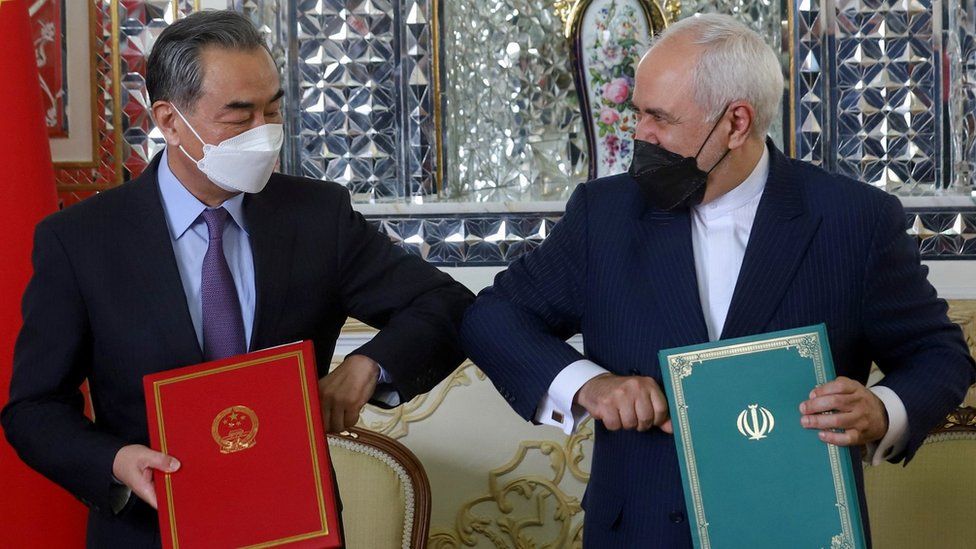China and Iran signed a deal over the weekend that their foreign ministers said was designed as a strategic partnership to last for the next quarter of a century.
The details have not been published yet, but the assumption is that China, in defiance of American sanctions, will buy Iranian oil. It will, in turn, invest some of its wealth in Iran. Sanctions have starved Iran of foreign investment.
It is the latest extension to China's vast infrastructure project, the Belt and Road initiative, which is creating the connections Beijing needs to continue its expansion as a global power.
Some Iranians were suspicious of China's motives when a draft of the co-operation agreement was leaked last year. Belt and Road deals are intended to benefit China most of all. Some that looked attractive have turned sour when smaller, poorer countries (and most countries are smaller and poorer than China) found they were in out of their depth.
Iran - smaller than China, but still a big country with huge natural resources and an activist foreign policy - is a different proposition.
The new deal will feed into Iran's face-off with the United States.
Both Iran and the Biden administration in Washington have declared that they would like the US to rejoin the agreement regulating Iran's nuclear activities, known as the Joint Comprehensive Plan of Action (JCPOA). Former President Donald Trump pulled the US out of the deal in 2018 and tried unsuccessfully to destroy it, claiming that far from stopping Iran getting a nuclear weapon it made the process much easier.
Both the Iranians and the Americans have been staring each other out, unprepared to be the one that blinks first in the negotiation.
Now that Iran has signed a strategic accord with China, which is also a party to the JCPOA, it will be hoping for more than simply increased oil sales, vital as they are to an economy that has been badly damaged by sanctions.
The deal should give Iran more leverage with the US.
https://www.bbc.com/news/world-middle-east-56574336

